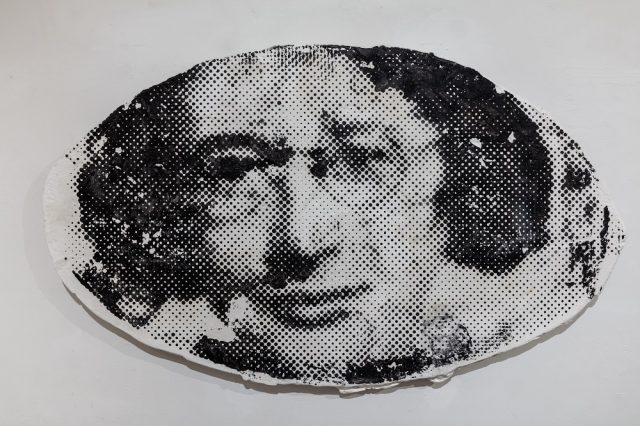







With the work: “A look at gender discrimination in artist associations with Simone Weil’s thinking in mind”, I take the plaster installation, which also contains anonymous typed interviews, as an investigative tool and asks the question: Does women’s oppression occur in artist associations in Denmark? The work is exhibited in the context of an artist association at the Corner Vest exhibition at MK61, in Nykøbing Mors. MK61 collaborates with Det Ny Kastet on the Corner Vest exhibition. The exhibitors are from Corner, and Corner’s six guest artists. In my practice, I repeat my interest in everyday life and the special challenges that come with being a woman, as well as working life as a female artist. The themes are often mixed with the feminist thinking of female philosophers with a focus on Simone de Beauvoir, Oxana Timofeeva and Simone Weil. The work is atypical in relation to my practice, as plaster is the supporting material. The work also has facets of repetition from my previous works with the written A4 sheets, which were at the center of “Win a Marriage Pact” and in the Russian A4 letters from Russian artists in the work “The Russian Project”. The installation consists of a larger elliptical plaster relief, on which is printed a coarse-grained portrait in silkscreen of the French philosopher Simone Weil. The viewer can read about a reality in the artists’ associations. In the installation there are plaster parts of bodily fragments from different people and genders – fragmented because the whole is missing. As the questions are answered, something obscure is revealed. A single plaster foot stands on the floor, other body parts are set against the wall. An artists’ association can roughly be described as a “workplace” for artists without a shop steward or union, like the Wild West. But instead of talking in this work about the lack of rights and oppression of female artists, the portrait of Simone Weil is used as a rallying point. The portrait reminds us of the values she stood for philosophically, that goodness, justice, and beauty do not depend on one’s identity. Weil primarily explored issues of suffering and evil, as well as the importance of compassion and solidarity.
